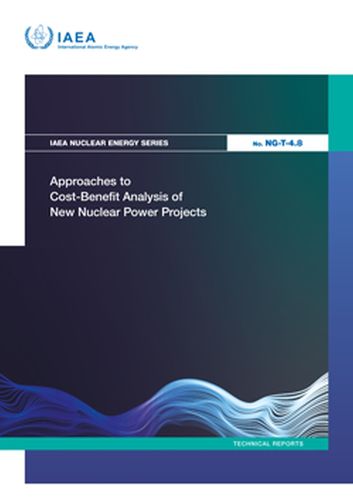Approaches to Cost-Benefit Analysis of New Nuclear Power Projects
IAEA

Approaches to Cost-Benefit Analysis of New Nuclear Power Projects
IAEA
Cost-Benefit Analysis (CBA) is an economic appraisal tool which can be used to inform an investment decision, for instance, the construction of a nuclear power plant. In a CBA, the costs and benefits are accounted for as fully as possible, allowing estimation of the net economic benefit associated with the project relative to a without-the-project scenario, or an alternative investment proposal. This publication suggests an approach for conducting a CBA for a nuclear newbuild project as part of a feasibility study. It presents a CBA framework which is built around four key steps to characterize a project: the project's objectives, alternatives to the project, and the broad context; a financial analysis, including estimates of costs and profitability; an economic analysis, taking a broader view to include additional benefits and costs to society; and a sensitivity and risk analysis to assign a confidence level to key financial and economic indicators and identify the circumstances in which the project will generate value. The publication includes a case study to illustrate the framework's application and describes, for example, the methodology used for valuing environmental benefits, such as emissions and pollution reduction. The publication is aimed at all stakeholders involved in the planning and decision-making on a nuclear new build project.
This item is not currently in-stock. It can be ordered online and is expected to ship in approx 4 weeks
Our stock data is updated periodically, and availability may change throughout the day for in-demand items. Please call the relevant shop for the most current stock information. Prices are subject to change without notice.
Sign in or become a Readings Member to add this title to a wishlist.


